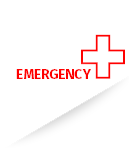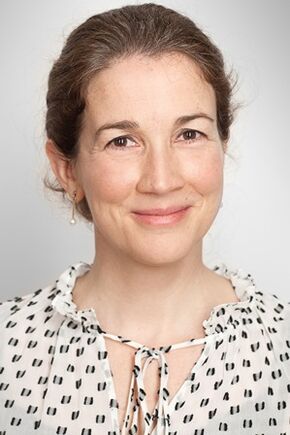Assistant Director
Research areas
- Chronic stress and vulnerability: Influence of early life experience on stress-regulatory systems
- Stress resonance: Physiological basis and mechanisms of stress contagion
- Plasticity of the stress system: Protective potential of trainings interventions and endogenous markers (oxytocin, BDNF, telomere length)
- Advancement of stress-related scientific methodology: Examination of the multidimensionality of the stress system
(Details on each research area can be found under Research)
Methods
- Behavior (experimental, experience-sampling)
- Peripheral physiology (auautonomic, endocrine and immunological assessments via ECG, saliva and blood sampling)
- Imaging (infrared thermal imaging, structural magnetic resonance)
Curriculum vitae
| 2019 |
Appointment to Professor of Social Neuroscience, Institute for Psychosomatic Medicine and Psychotherapy, Jena University Clinic, Jena, Germany |
|
Since 2019 |
Independent Research Group Leader, „Social Stress and Family Health“ Research Group, Max Planck Institute for Human Cognitive and Brain Sciences, Leipzig, Germany |
| 2016-2018 |
Group leader, Social Stress Laboratory, Max Planck Institute for Human Cognitive and Brain Sciences, Leipzig, Germany |
| 2010-2016 |
Senior Researcher, Department of Social Neuroscience, Max Planck Institute for Human Cognitive and Brain Sciences, Leipzig, Germany |
| 2007-2010 |
Postdoc, Douglas Mental Health University Institute und Montreal Neurological Institute, McGill University, Montreal, Kanada |
| 2006 |
PhD (Dr. rer. nat.) in Psychology: “Behavioral response to methylphenidate challenge: Influence of early life parental care and personality”, Department of Clinical and Physiological Psychology, Trier University, Germany |
| 2002-2006 | PhD student, Department of Clinical and Physiological Psychology, Trier University, Germany |
| 10/2002 | Diplom (Master’s degree equivalent) in Psychology: “Stress reactivity in traumatized adolescents after experience of severe childhood abuse”, Department of Clinical and Physiological Psychology, Trier University, Germany |
| 1999 |
Vordiplom (Bachelor’s degree equivalent) in Psychology, Trier University, Germany |
Publications
2019
Engert V, Linz R, Grant JA (2019). Embodied stress: The empathic physiological resonance of stress. Psychoneuroendocrinology, 105:138-146.
Linz R, Pauly R., Smallwood J, Engert V (2019). Mind-wandering content differentially translates from lab to daily life and relates to subjective stress experience. Psychological Research.DOI: s00426-019-01275-2
Linz R, Papassotiriou I, Chrousos GP, Apostolakou F, Singer T, Engert V (2019). Acute psychosocial stress increases serum BDNF levels at baseline and after mental training: Evidence for an antagonistic relation of BDNF and cortisol. Neuropsychopharmacology, 44(10):1797-1804.
Przyrembel M, Vrticka P, Engert V, Singer T (2019). Loving-Kindness Meditation – a Queen of Hearts? A physio-phenomenological investigation on the variety of experience. Journal of Consciousness Studies, 26(7-8):95-129.
Puhlmann LMC, Engert V, Apostolakou F, Papassotiriou I, Chrousos GP, Vrticka P, Singer T (2019). Only vulnerable participants show change in chronic low-grade inflammation after contemplative mental training: Evidence from a randomized clinical trial. Scientific Reports.
Puhlmann LMC, Linz R, Valk SL, Vrticka P, Vos de Waal R, Bernasconi A, Bernasconi N, Caldairou B, Papassotiriou I, Chrousos GP, Bernhardt BC, Singer T, Engert V (2019). The association between hippocampal structure and serum brain-derived neurotrophic factor (BDNF) in healthy adults: a proposed registered report. Neuroimage.
Puhlmann LMC, Valk SL, Engert V, Bernhardt BC, Lin J, Epel ES, Vrticka P, Singer T (2019). Short-term change in leukocyte telomere length: relation to changes in cortical thickness and effects of mental training. JAMA Network Open, 2(9):e199687
Singer T, Engert V (2019). It matters what you practice: Differential training effects on subjective experience, behaviour, brain and body in the ReSource Project. Current Opinion in Psychology, 28:151-158.
2018
Engert V, Kok BE, Stalder T, Papassotiriou I, Papanastasopoulou C, Puhlmann L, Kirschbaum C, Chrousos GP, Singer T (2018). Exploring the multidimensional complex systems structure of the stress response and its relation to health and sleep outcomes. Brain, Behavior and Immunity, 73:390-402.
Engert V, Ragsdale AM, Singer T (2018). Cortisol stress resonance in the laboratory is associated with inter-couple diurnal cortisol covariation in daily life. Hormones and Behavior, 98:183-190.
Linz R, Singer T, Engert V (2018). Interactions of momentary thought content and subjective stress predict cortisol fluctuations in a daily life experience sampling study. Scientific Reports, 8:15462.
Miller R, Wojtyniak JG, Weckesser L, Alexander N, Engert V, Lehr T (2018). How to disentangle psychobiological stress reactivity and recovery: A comparison of model-based and non-compartmental analyses of cortisol concentrations. Psychoneuroendocrinology, 90:194-210.
2017
Engert V, Kok BE, Papassotiriou I, Chrousos GP, Singer T (2017). Specific reduction of cortisol stress reactivity after social but not attention-based mental training. Science Advances, 3:e1700495.
2016
Dedovic K, Giebl S, Duchesne A, Lue SD, Andrews J, Efanov S, Engert V, Beaudry T, Baldwin MW, Pruessner JC (2016). Psychological, endocrine, and neural correlates of attentional bias in subclinical depression. Anxiety Stress Coping, 29:479-496.
Engert V, Koester AM, Riepenhausen A, Singer T (2016). Boosting recovery rather than buffering reactivity: Higher stress-induced oxytocin secretion is associated with increased cortisol reactivity and faster vagal recovery after acute psychosocial stress. Psychoneuroendocrinology, 74:111-120.
2015
Engert V, Steinbeis N, Linz R, Singer T (2015). The effects of stress and affiliation on social decision-making: Investigating the tend-and-befriend pattern in men. Psychoneuroendocrinology, 62:138-148.
Radenbach C, Reiter AMF, Engert V, Sjoerds Z, Villringer A, Heinze HJ, Deserno L, Schlagenhauf F (2015). The interaction of acute and chronic stress impairs model-based behavioral control. Psychoneuroendocrinology, 53:268-280.
2014
Engert V, Merla A, Grant JA, Cardone D, Tusche A, Singer T (2014). Exploring the use of thermal infrared imaging in human stress research. PLoS One, 9:e90782.
Engert V, Plessow F, Miller R, Kirschbaum C, Singer T (2014). Cortisol increase in empathic stress is modulated by emotional closeness and observation modality. Psychoneuroendocrinology, 45:192-201.
Engert V, Smallwood J, Singer T (2014). Mind your thoughts: Associations between self-generated thoughts and stress-induced and baseline levels of cortisol and alpha-amylase. Biological Psychology, 103:283-291.
2013
Admon R, Leykin D, Lubin G, Engert V, Andrews J, Pruessner JC, Hendler T (2013). Stress-induced reduction in hippocampal volume and connectivity with the ventromedial prefrontal cortex are related to maladaptive responses to stressful military service. Human Brain Mapping, 34:2808-2816.
Dedovic K, Duchesne A, Engert V, Lue SD, Andrews J, Efanov SI, Beaudry T, Pruessner JC (2013). Psychological, endocrine and neural responses to social evaluation in subclinical depression. Social Cognitive and Affective Neuroscience, 9:1632-1644.
Engert V, Efanov SI, Duchesne A, Vogel S, Corbo V, Pruessner JC (2013). Differentiating anticipatory from reactive cortisol responses to psychosocial stress. Psychoneuroendocrinology, 38:1328-1337.
2012
Duchesne A, Tessera E, Dedovic K, Engert V, Pruessner JC (2012). Effects of panel sex composition on the physiological stress responses to psychosocial stress in healthy young men and women. Biological Psychology, 89:99-106.
2011
Engert V, Efanov SI, Dedovic K, Pruessner JC (2011). Increased cortisol awakening response and afternoon/evening cortisol output in healthy young adults with low early life parental care. Psychopharmacology, 214:261-268.
Engert V, Vogel S, Efanov SI, Duchesne A, Corbo V, Ali N, Pruessner JC (2011). Investigation into the cross-correlation of salivary cortisol and alpha-amylase responses to psychological stress. Psychoneuroendocrinology, 36:1294-1302.
2010
Dedovic K, Engert V, Duchesne A, Lue SD, Andrews J, Efanov SI, Beaudry T, Pruessner JC (2010). Cortisol awakening response and hippocampal volume: Vulnerability for major depressive disorder? Biological Psychiatry, 68:847-853.
Engert V, Buss C, Khalili-Mahani N, Wadiwalla M, Dedovic K, Pruessner JC (2010). Investigating the association between parental care and stress responsivity in adulthood. Developmental Neuropsychology, 35:570-581.
Engert V, Efanov SI, Dedovic K, Duchesne A, Dagher A, Pruessner JC (2010). Perceived early life maternal care and the cortisol response to repeated psychosocial stress. Journal of Psychiatry and Neuroscience, 35:370-377.
Khalili-Mahani N, Dedovic K, Engert V, Pruessner M, Pruessner JC (2010). Hippocampal activation during a cognitive task is associated with subsequent neuroendocrine and cognitive responses to psychological stress. Hippocampus, 20:323-334.
Lord C, Engert V, Lupien S, Pruessner JC (2010). Striatal and hippocampal structural changes associated with estrogen therapy use in lifelong reproductive events. Menopause, 17:846-851.
2009
Dedovic K, Duchesne A, Andrews J, Engert V, Pruessner JC (2009). The brain and the stress axis: The neural correlates of cortisol regulation in response to stress. Neuroimage, 47:864-871.
Dedovic K, Rexroth M, Wolff E, Duchesne A, Scherling C, Beaudry T, Lue SD, Lord C, Engert V, Pruessner JC (2009). Neural correlates of processing stressful information: An event-related fMRI study. Brain Research, 1293:49-60.
Dedovic K, Wadiwalla M, Engert V, Pruessner, JC (2009). The role of sex and gender in stress reactivity. Developmental Psychology, 45:45-55.
Engert V, Joober R, Meaney MJ, Hellhammer DH, Pruessner JC (2009). Behavioral response to methylphenidate challenge: Influence of early life parental care. Developmental Psychobiology, 51:408-416.
2008
Engert V, Pruessner JC (2008). Dopaminergic and noradrenergic contributions to functionality in ADHD: The role of methylphenidate. Current Neuropharmacology, 6:322-328.
Pruessner JC, Dedovic K, Pruessner M, Engert V, Khalili-Mahani N, Renwick R, Dagher A, Meaney MJ, Lupien S (2008). Deactivation of the limbic system during acute psychosocial stress: Evidence from positron emission tomography and functional resonance imaging studies. Biological Psychiatry, 63:234-240.
2005
Dedovic K, Renwick R, Khalili-Mahani N, Engert V, Lupien S, Pruessner JC (2005). The Montreal Imaging Test – using functional imaging to investigate the effects of perceiving and processing psychosocial stress in the human brain. Journal of Psychiatry and Neuroscience, 30:319-325.
Gaab J, Rohleder N, Heitz V, Engert V, Schad T, Schurmeyer TH, Ehlert U (2005). Stress-induced changes in LPS-induced pro-inflammatory cytokine production in chronic fatigue syndrome. Psychoneuroendocrinology, 30:188-198.
2004
Gaab J, Engert V, Heitz V, Schad T, Schurmeyer TH, Ehlert U (2004). Associations between neuroendocrine responses to the Insulin Tolerance Test and patient characteristics in chronic fatigue syndrome. Journal of Psychosomatic Research, 56:419-424.
Hellhammer J, Fries E, Buss C, Engert V, Tuch A, Ruthenberg D, Hellhammer DH (2004). Effects of soy lecithin phosphatidic acid and phosphatidylserine complex (PAS) on the endocrine and psychological response to mental stress. Stress, 7:119-126.
2003
Gaab J, Hüster D, Peisen R, Heitz V, Engert V, Schad T, Schürmeyer TH, Ehlert U (2003). Assessment of cortisol response with low-dose and high-dose ACTH in patients with chronic fatigue syndrome and healthy comparison subjects. Psychosomatics, 44:113-119.
Gaab J, Rohleder N, Heitz V, Schad T, Engert V, Schürmeyer TH, Ehlert U (2003). Enhanced glucocorticoid sensitivity in patients with chronic fatigue syndrome. Acta Neuropsychiatrica, 15:184-191.
2002
Gaab J, Hüster D, Peisen R, Engert V, Schad T, Schürmeyer TH, Ehlert U (2002). Hypothalamic-pituitary-adrenal axis reactivity in chronic fatigue syndrome and health under psychological, physiological and pharmacological stimulation. Psychosomatic Medicine, 64:951-962.
Gaab J, Hüster D, Peisen R, Engert V, Schad T, Schürmeyer TH, Ehlert U (2002). Low-dose dexamethasone suppression test in chronic fatigue syndrome and health. Psychosomatic Medicine, 64:311-318.



